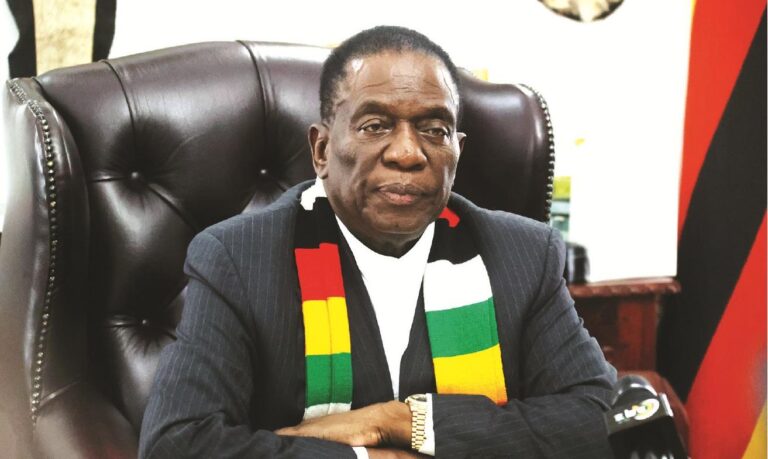Zimbabwe’s Political Turmoil: The Growing Demand for Leadership Change
In Zimbabwe, a country facing meaningful political strife and economic challenges, President Emmerson Mnangagwa is increasingly under scrutiny as calls for his resignation gain momentum.Amidst soaring inflation and widespread dissatisfaction with governance, pressure from opposition factions and civil society organizations has intensified. This unrest is fueled by long-standing accusations of human rights violations and corruption within Mnangagwa’s government, igniting discussions about the future of leadership in Zimbabwe. This article explores the factors driving the demand for Mnangagwa’s departure and its implications for the nation’s political environment.
Escalating Opposition and Civil Society Pressure
The political atmosphere in Zimbabwe has become increasingly volatile as various opposition parties alongside civil society groups amplify their demands for President Mnangagwa to resign. Civic protests have become commonplace, with citizens expressing their frustration over what they perceive as a deterioration of democratic principles coupled with rising corruption levels. Activists contend that Mnangagwa’s administration has neglected critical issues such as rampant inflation, high unemployment rates, and human rights violations—factors that are fueling public discontent. Recently, numerous demonstrations have erupted nationwide to highlight governmental inaction while demanding accountability from those in power.
Opposition leaders have come together to denounce the current regime, claiming that presidential policies have adversely affected everyday Zimbabweans’ lives. Influential activists are utilizing social media platforms along with grassroots initiatives to rally support against the ruling party. Compounding these tensions are widespread allegations of electoral fraud which many believe undermine Mnangagwa’s legitimacy as president. The table below summarizes key grievances raised by both opposition entities and civil society:
| Main Concerns | Consequences |
|---|---|
| Corruption | Erodes public trust; misappropriates resources. |
| Inflation | Dramatically raises living costs; exacerbates poverty. |
| Human Rights Violations | Saps civil liberties; restricts freedoms. |
| Elections Integrity Issues | Diminishes democratic integrity; fosters skepticism among voters. |
Economic Crisis and Public Anger Spark Demands for Leadership Change
The escalating economic crisis in Zimbabwe has led to widespread dissatisfaction among its citizens who are increasingly calling for a change in leadership. With hyperinflation rates skyrocketing alongside soaring unemployment figures—and pervasive poverty—people express growing frustration at how ineffectively the ruling government addresses their urgent needs. Observers note that essential services continue to decline sharply, further straining relations between authorities and constituents who feel neglected by their leaders.
Civil unrest characterized by protests—which were once deemed risky—has surged due to worsening economic conditions highlighting an urgent need for accountability from officials tasked with governance responsibilities. Key contributors to this unrest include:
- Skyrocketing food prices: The cost of basic goods has soared dramatically leaving many families unable even afford daily meals.
- Lack of job opportunities: Unemployment remains alarmingly high forcing many young individuals into precarious survival strategies.
- Anecdotes of corruption: Reports detailing mismanagement within government ranks have substantially diminished public confidence.
The intensifying public pressure raises speculation regarding potential successors while shifting dynamics within Zimbabwean politics become more apparent than ever before.
As systemic change becomes imperative amidst rising frustrations towards governance practices under President Mnangagwa’s rule—the challenge he faces grows exponentially each day he remains unresponsive.
Internal Party Struggles Complicate Mnangagwa’s Position Amid Rising Demands
The internal divisions plaguing ZANU-PF—the ruling party—have considerably weakened President Emmerson Mnangagwa’s hold on power amid increasing calls for his resignation driven largely by discontent over allegations surrounding corruption coupled with ineffective management during an ongoing economic downturn without resolution insight forthcoming anytime soon.
Reports indicate various factions within ZANU-PF vying fiercely amongst themselves complicate matters further preventing any cohesive response towards addressing pressing citizen grievances effectively leading rather toward greater dissent both politically aligned allies & general populace alike!
This factionalism presents several challenges confronting Mr.MnANGAGWA including but not limited too:
-
 Â
- Crisis regarding legitimacy: – Post-election disputes along claims surrounding vote rigging erode trust amongst voters!
- Burgeoning Economic Pressures : - Citizens demand immediate solutions addressing hyperinflation/unemployment crippling economy!
- Diplomatic Isolation :– Sanctions imposed alongside international pressures exacerbate administrative difficulties!
 Â
 Â
As uncertainty looms large over future prospects concerning ZANU-PF itself analysts suggest unless Mr.MnANGAGWA can tackle both existing realities faced economically & brewing discontent internally he risks becoming isolated politically! Furthermore potential successors appear poised ready seize possibility indicating internal conflicts may escalate into larger battles determining control shaping overall trajectory ahead!
Conclusion: Key Insights Ahead
In conclusion it is evident President Emmerson MnanGAGWA finds himself navigating treacherous waters amidst mounting pressures stemming from opposition forces,civil societies,and growing citizen dissatisfaction challenging his authority directly! With an economy grappling intensely against hyperinflation persistent food shortages escalating political turmoil demands louder than ever before echo throughout nation prompting urgent inquiries regarding governance accountability processes involved moving forward.
As crucial electoral milestones approach national fate hangs precariously awaiting developments unfolding across turbulent landscape drawing attention globally fixated upon Harare anticipating changes potentially reshaping course history unfolds ahead!







